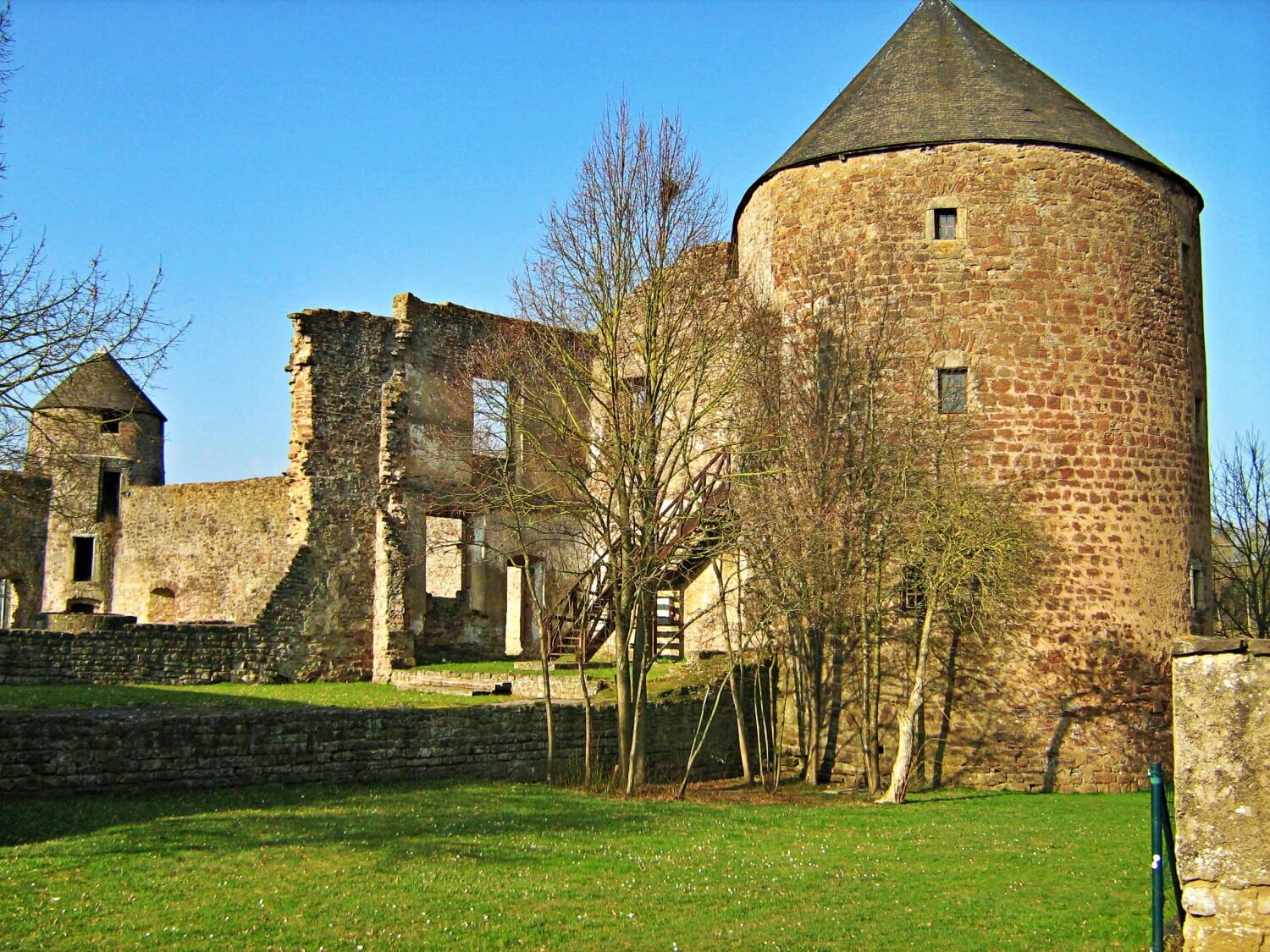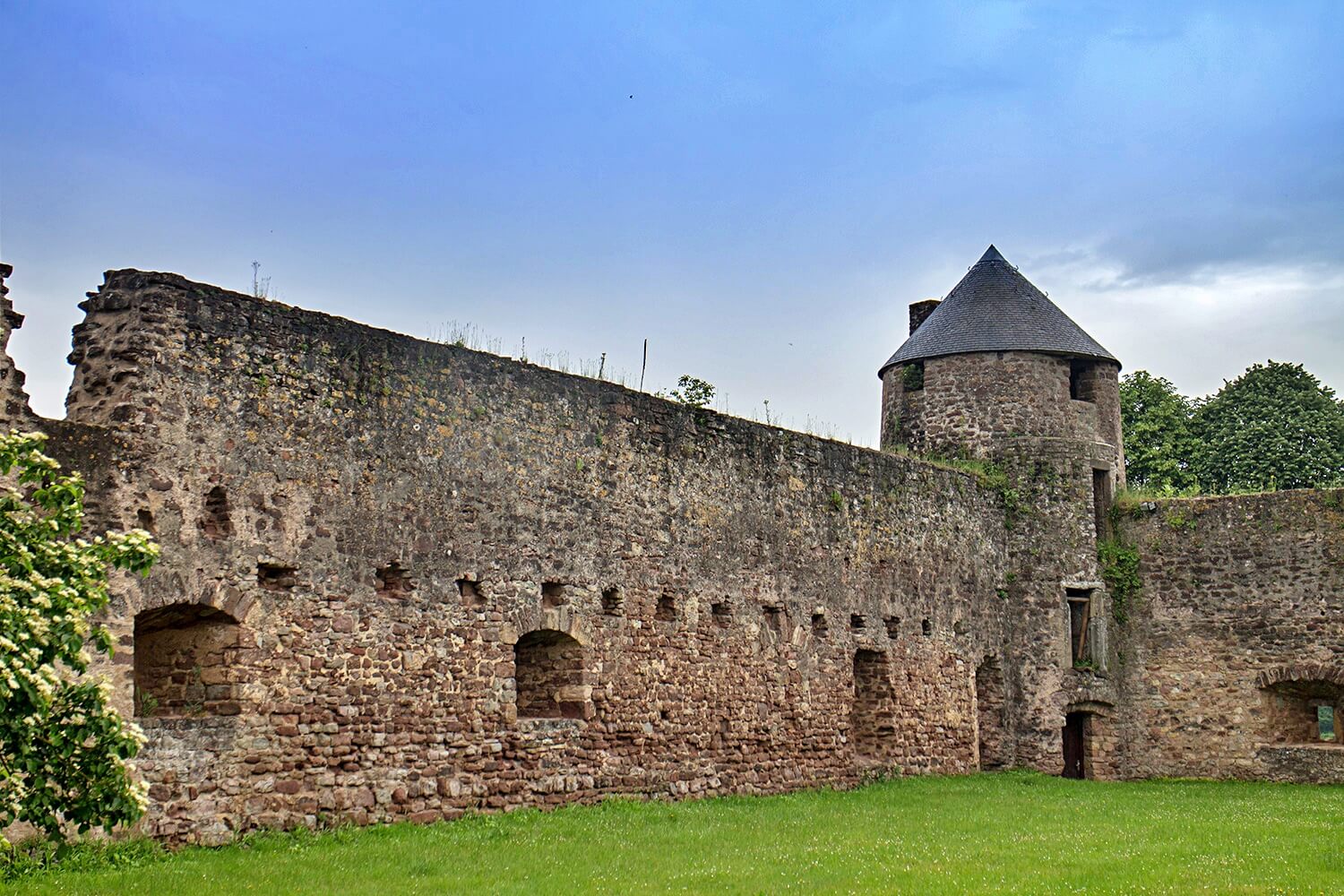Pettingen Castle
Mersch Mersch Luxemburg
castle, chateau
Château de Pettange
Mersch Mersch Luxemburg
castle, chateau
Schloss Pettingen
Mersch Mersch Luxemburg
castle, chateau
Pettingen Castle is located in the village of Pettingen some 4 km north of Mersch in central Luxembourg
La forteresse de Pettingen était connue dès le 10e siècle sous le nom de Pittigero Mazini; le nom de Pettingen ou Pittange lui fut substitué au 13e siècle
Die schönen Ruinen zeugen von der einstigen Mächtigkeit des Schlosses
Previous names
Pettingen Castle, Château de Pettange, Schloss Pettingen
Description
Pettingen Castle is located in the village of Pettingen some 4 km north of Mersch in central Luxembourg. It is one of the best preserved fortified castles in the country.
History
In the 10th century the fortress was known as Pittigero Mazini but received the name of Pettingen in the 13th century. Towards the end of the Middle Ages, the Lords of Pettingen were important members of Luxembourg society. They were present at Ermesinde's wedding, at the coronation of Henri IV and at the signing of John the Blind's marriage contract.
At the beginning of the 14th century Arnold of Pettingen married Marguerite of Rousy, the great granddaughter of Ermisinde. He had a son, Arnold the Young, whose daughter Irmengard, by marrying Jean de Créhange, associated the Lords of Pettingen with his renowned family. Their grandson, also called Jean, fought for René, the Duke of Lorraine in the war against Charles the Bold, Duke of Burgundy. In revenge, Charles completely destroyed the Castle of Pettingen whose treasures were confiscated by the Governor of Luxembourg in 1494. However, as a result of a decree made at the Great Council of Mechelen in 1503, half of the treasures were returned and the castle was reconstructed in its present form. The four corner towers were added in 1571. In 1684 Louis XIV's troops bombarded the castle, leaving it as it stands today. The ruins, which belonged to the house of Créhange, were inherited by the Comtes de Lapérouse whose descendants sold it to the Duke of Arenberg in 1837. In 1910 his descendant, the Prince of Arenberg, removed everything of value from the castle. In 1920 the southern wall collapsed.
In 1947 the castle was acquired by the State of Luxembourg. Consolidation work was carried out on the walls and on the castle's two towers in 1950.
The castle today
The ruins are open to the public. The ramparts with two round towers on the north-eastern side still stand. The site forms a 30 by 30 metre square surrounded by a former moat 15 metres wide fed by the Weillerbach which flowed into the River Alzette.
La forteresse de Pettingen était connue dès le 10e siècle sous le nom de Pittigero Mazini; le nom de Pettingen ou Pittange lui fut substitué au 13e siècle. Le nom des seigneurs de Pittange s'associe à tous les événements remarquables du Luxembourg dans les derniers temps du Moyen Âge. On les voit figurer aux noces d'Ermesinde, à l'avènement au trône de Henri IV, au contrat de mariage du comte Jean l'Aveugle.
En 1571, les quatre tours d'angle furent ajoutées. En 1684, les troupes de Louis XIV bombardèrent le château et le réduisirent à l'état où nous le voyons aujourd'hui. Ces ruines, ainsi que tous les biens qui dépendaient de la seigneurie de Créhange, sont passés par héritage aux comtes de la Peyrouse, et les héritiers de cette dernière maison ont vendu Pittange et Bissen avec les autres biens qui en dépendaient au duc d'Arenberg (1837). Depuis 1947, le château de Pettingen est la propriété de l'État luxembourgeois.
https://www.visitluxembourg.com/
Die schönen Ruinen zeugen von der einstigen Mächtigkeit des Schlosses. Die Festung von Pettingen war ab dem 10. Jahrhundert bekannt als „Pittigero Mazini“ – Name, der im 13. Jahrhundert durch Pettingen oder Pittingen ersetzt wurde. Die Namen der Herren von Pittingen sind mit allen wichtigen Ereignissen Luxemburgs im Mittelalter verbunden; so z.B. der Hochzeit Ermesindes, der Thronbesteigung Heinrichs IV., dem Heiratsvertrag des Grafen Johann der Blinde.
Die Ruinen sowie alle Güter der Herrschaft Criechingen wurden an die Grafschaft Peyrouse vererbt, deren Erben Pittingen und Bissen mit den anderen Gütern 1837 an den Herzog von Arenberg verkauften. Seit 1947, ist Schloss Pettingen luxemburgisches Staatseigentum.
https://www.visitluxembourg.com/
Useful information
Free
Free
- Information tables
- Playground
-
-
Nearby castles
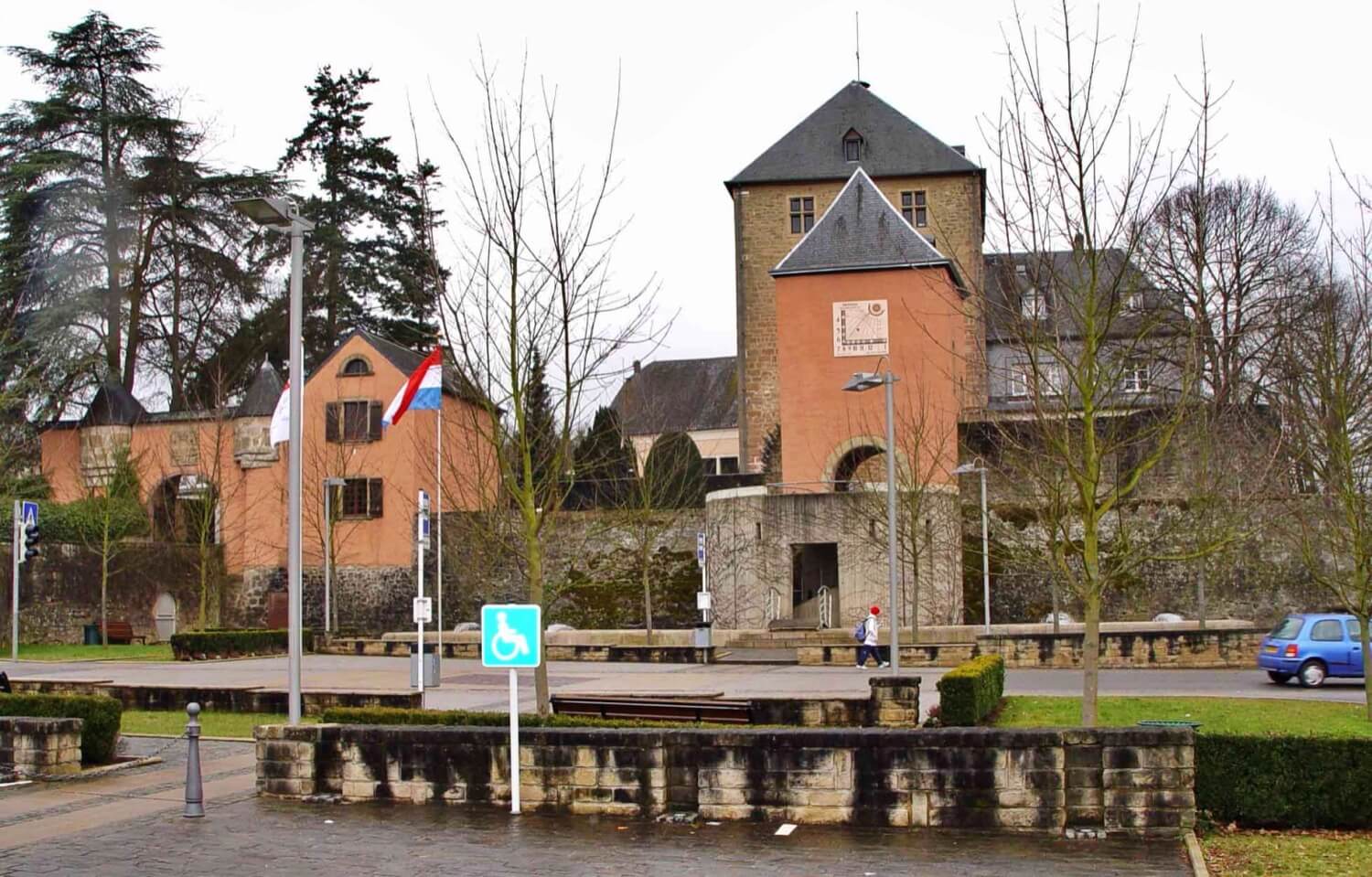
Mersch Castle
Mersch
2.5km
castle, chateau
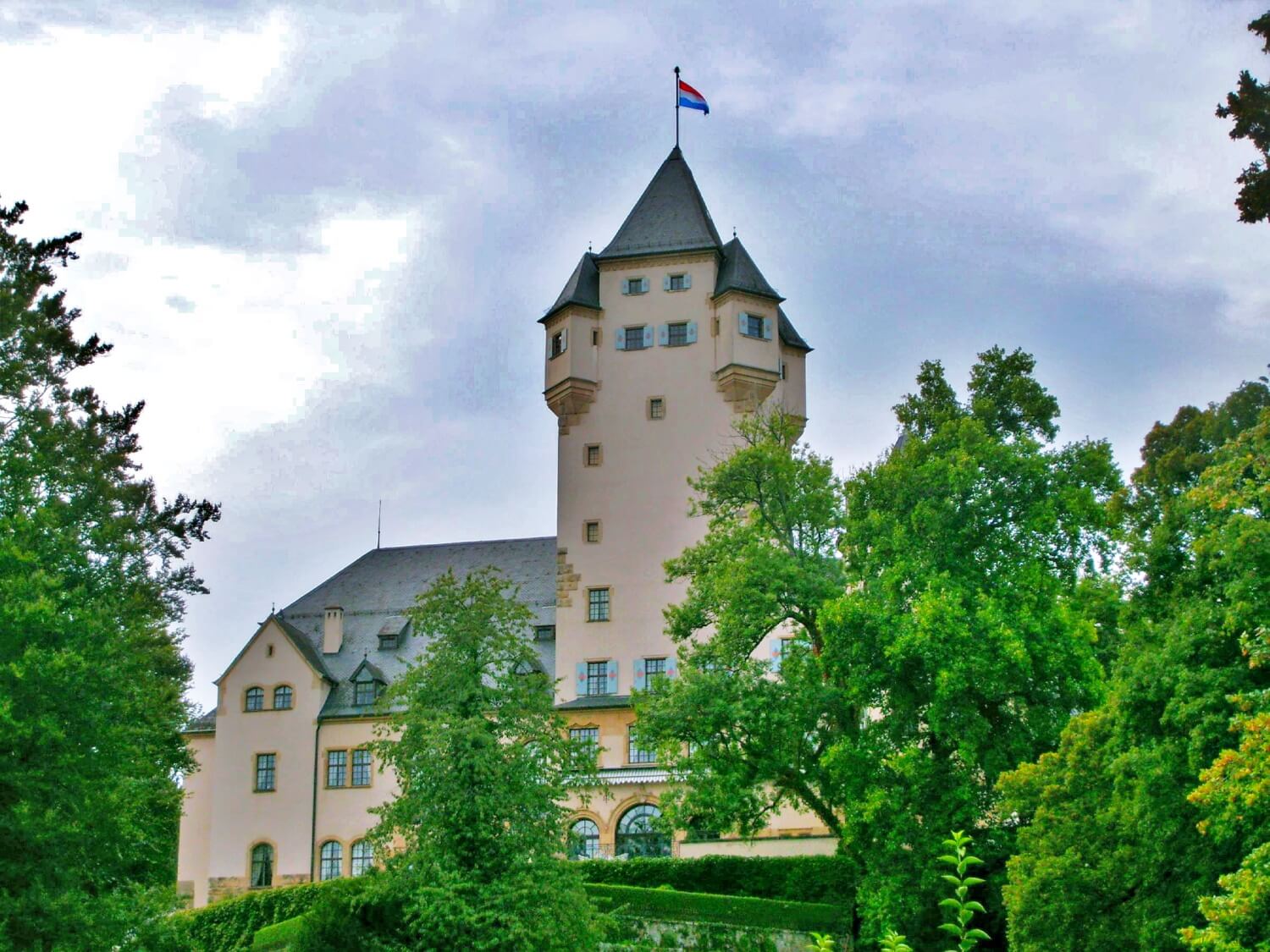
Berg Castle
Colmar-Berg
5.1km
castle, chateau
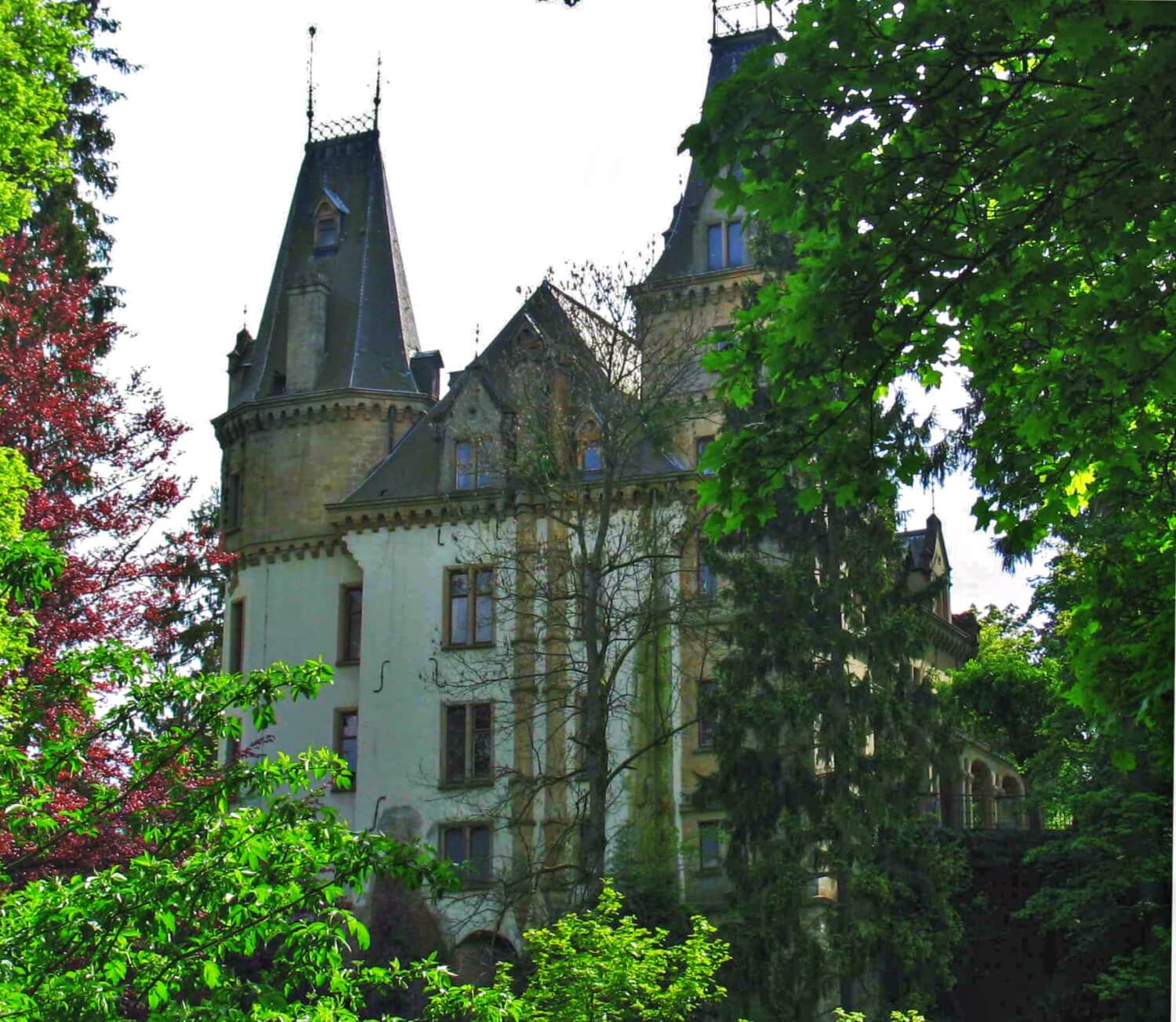
Meysembourg Castle
Larochette
5.8km
castle, chateau
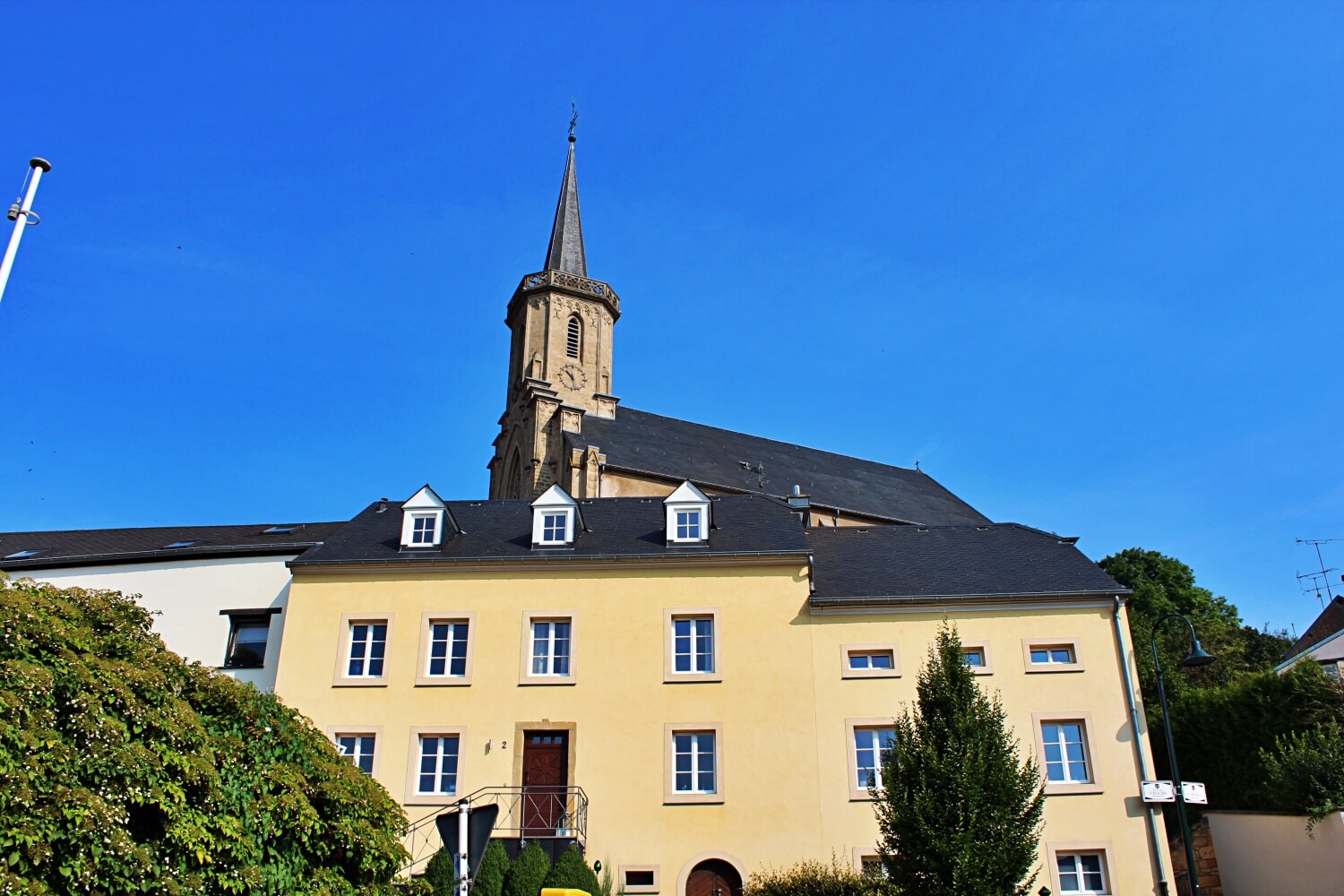
Fischbach Castle
Fischbach
6.2km
castle, chateau
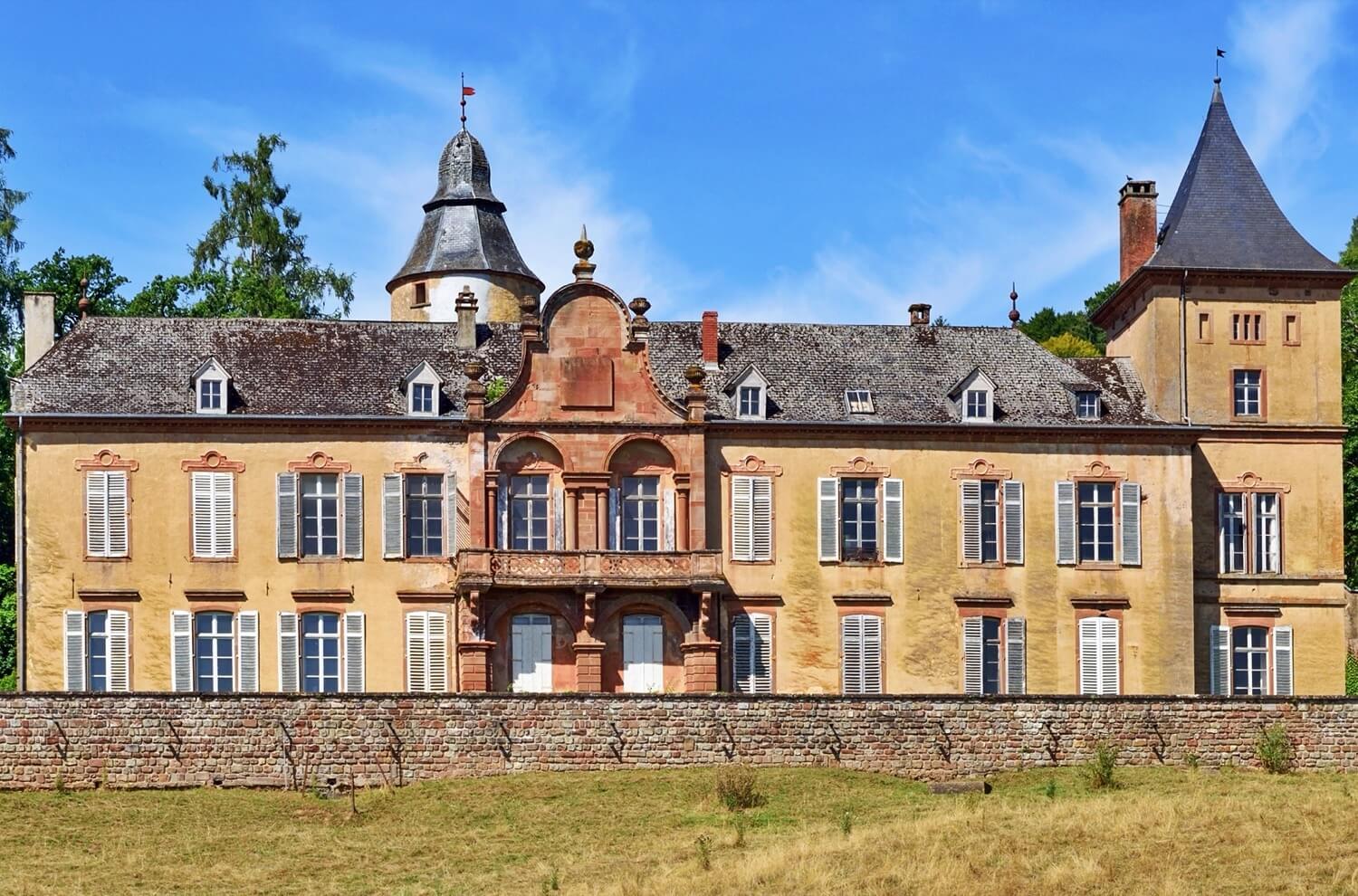
Birtrange Castle
Colmar-Berg
6.4km
castle, chateau
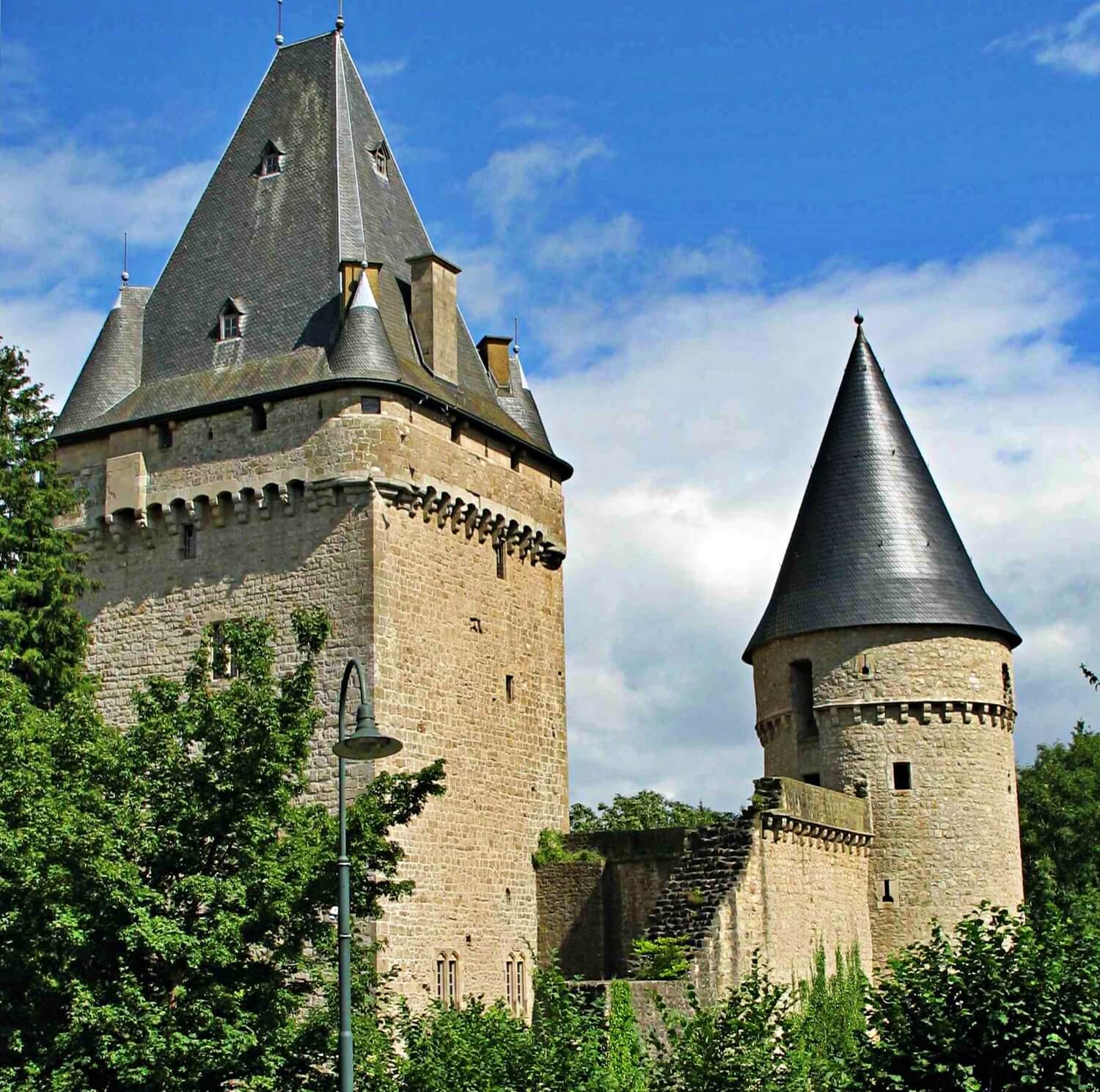
Hollenfels Castle
Helperknapp
7.6km
castle, chateau
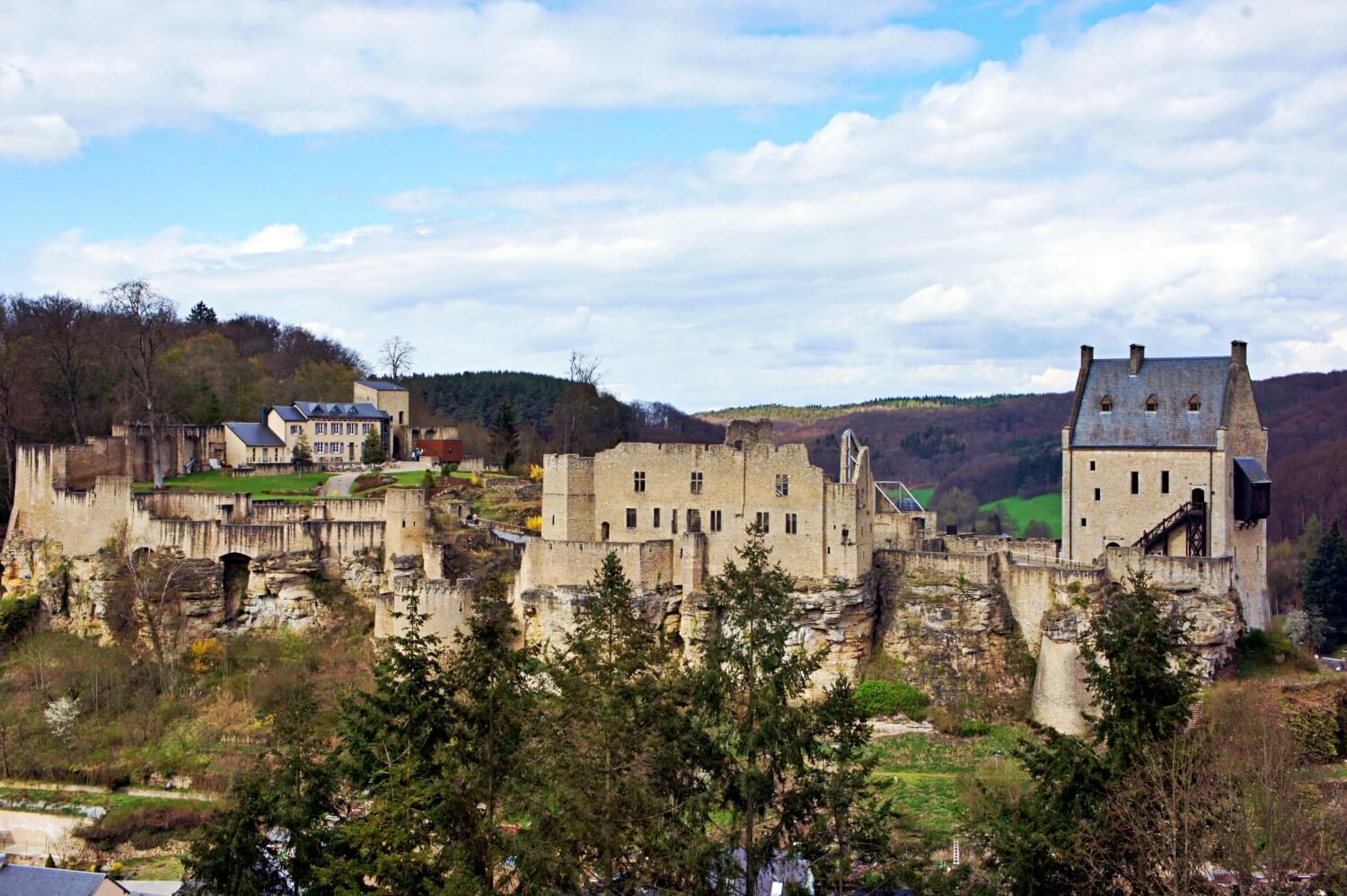
Larochette Castle
Larochette
8.0km
castle, chateau
